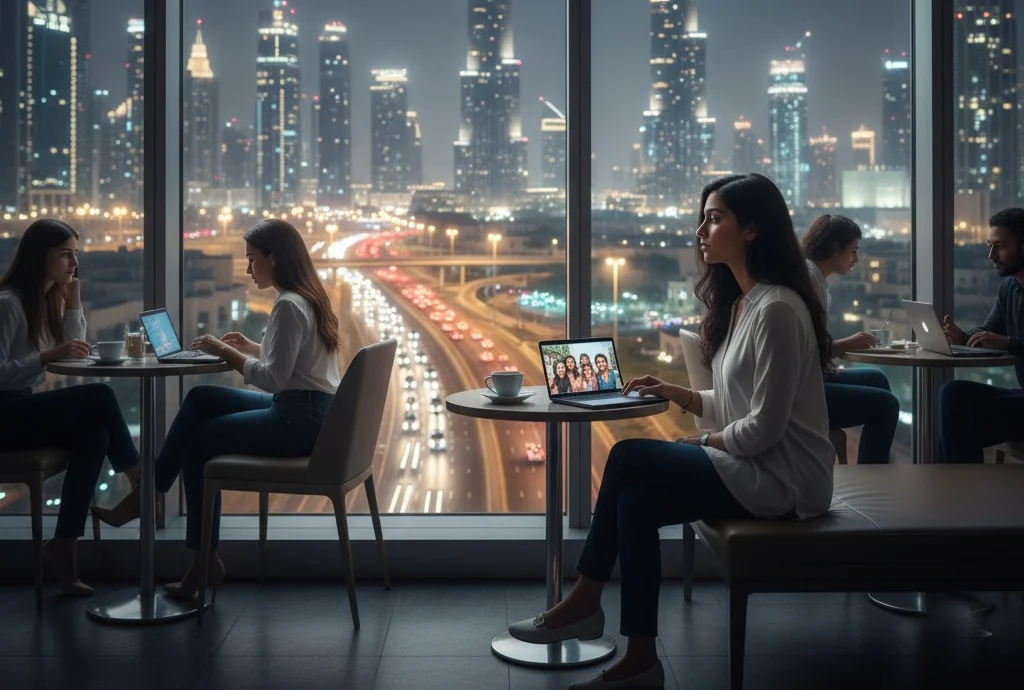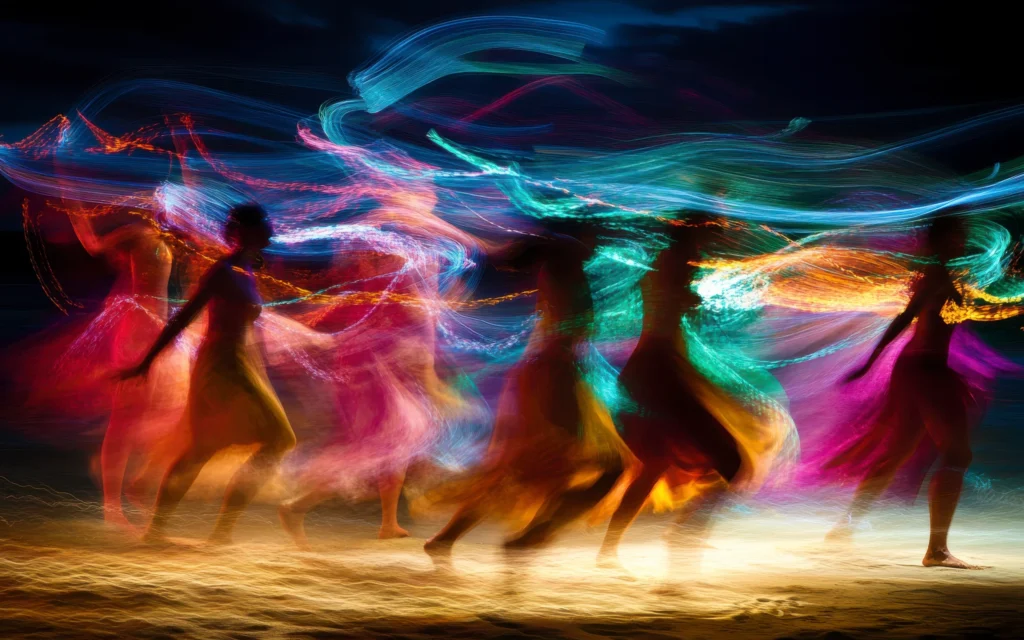Loneliness in the Age of Connection
By Ami Jain
The world that never stops buzzing, where our phones light up before our eyes fully open and the hum of notifications follows us everywhere, it feels impossible to imagine being alone. Yet beneath the surface of constant connectivity, many of us carry a quiet, unshakable truth: the more connected we become, the lonelier we often feel. This is the paradox of our age, one we rarely name out loud but one that defines our days in ways we are only beginning to understand.
The Paradox We Pretend Not to See
I scroll. I tap. I react with emojis that don’t quite match what I feel. My feed is alive with faces, captions, and reels, a constant hum of connection. Yet the moment I put my phone down, silence stretches across the room. And I realize what so many of us carry quietly: in this age of infinite connection, we have never felt more alone.
This isn’t just my story. It’s the story of our generation. Technology folded the world into our palms, shrunk oceans into seconds, and made intimacy available on demand. A ping can spark joy, anger, or longing. But beneath the glow of screens, a shadow lingers, the ache of conversations that skim the surface, friendships that exist on pixels more than in person, a kind of loneliness no filter can hide.




When Connection Becomes Performance
Let’s be honest: much of what we call “connection” today is performance art. A like isn’t love. A comment doesn’t care. A share isn’t understanding.
We scroll through highlight reels while quietly burying our own low moments. We post to prove we’re thriving, even when survival feels like all we’ve got. And the cost is heavy. Loneliness now isn’t about being physically alone; it’s about being emotionally unseen.
Picture this: sitting in a crowded majlis in Sharjah or a buzzing café in Downtown Dubai, yet feeling an ache no one around you can sense. Hundreds of WhatsApp groups ping all day, but when the clock strikes 2 a.m. and the weight of life presses in, who do you really call? We’ve multiplied our connections, but thinned their depth. And the uncomfortable question remains: are we building communities, or facades?
The Price of Convenience
Here’s the truth we don’t like to face: loneliness isn’t just accidental. It’s the hidden price of the convenience we wanted.
We asked for instant messaging, we got speed, but not meaning. We wanted global networks, we got endless feeds, but not always belonging. We craved attention, we got likes, but not love.
We traded presence for convenience, and then wondered why our hearts feel restless. And maybe the hardest truth? Sometimes we choose loneliness. Because true connection requires risk, the risk of being honest, vulnerable, imperfect. It’s easier to double-tap than to dial, easier to send a reel than to confess, I’m not okay today.


The UAE’s Quiet Ache
Nowhere is this paradox sharper than in the UAE. A land of glittering towers, relentless ambition, and constant motion, it dazzles from the outside. But peel back the polished layers, and the silence is unmistakable.
Many who move here arrive chasing opportunity, and often, they find it. Yet in the quiet hours, with family continents away and friendships still forming, loneliness can creep in like a shadow no one talks about.
But the antidotes exist, small, real places that pulse with human warmth: a late-night karak stand on a side street, a poetry gathering in Alserkal Avenue, the timeless comfort of a majlis where stories are shared without filters. These are the pockets of belonging that remind us: connection doesn’t need to be perfect, it just needs to be present.
The Hidden Cost of Constant Connectivity
The irony is striking. Loneliness today isn’t born of absence but of excess. Too much noise, too much scrolling, too much surface engagement that leaves us emptier inside. We confuse activity with intimacy, notifications with care.
Psychologists call it a silent epidemic. The health impact of chronic loneliness, they warn, rivals smoking fifteen cigarettes a day. Yet unlike smoking, there’s no label, no obvious risk. Just a creeping ache many of us dismiss as normal.
And here in the UAE, where appearances shine brighter than truths, loneliness slips quietly behind curated Instagram grids and the gloss of success. Hidden, but heavy.


Reclaiming the Meaning of Belonging
So how do we undo this paradox? How do we move from connection as performance to connection as presence?
It starts with honesty, admitting that a thousand connections can still leave us lonely. Then comes courage, the courage to call instead of text, to show up in person instead of reacting online, to lean into the messy reality of human bonds.
It means using technology as a bridge, not a shield: sending a voice note that carries tone, inviting a friend to coffee instead of sending a meme, risking depth in a world that rewards surfaces.
Most of all, it means remembering that loneliness is not weakness. It’s a signal, a reminder of our deepest human need: to be seen, heard, and known.
Presence, The Rarest Luxury
At the end of the day, no app or algorithm can solve this paradox. Only we can. By choosing, every day, to be present for each other.
To scroll less and see more. To post less and speak more. To trade filters for honesty, and convenience for depth.
Because in a world that sells us connection, the rarest luxury is presence, a voice that doesn’t just text, an eye that really sees, a moment shared without distraction.
And maybe, if we learn to value this again, we’ll discover that the cure for loneliness has been within us all along.



